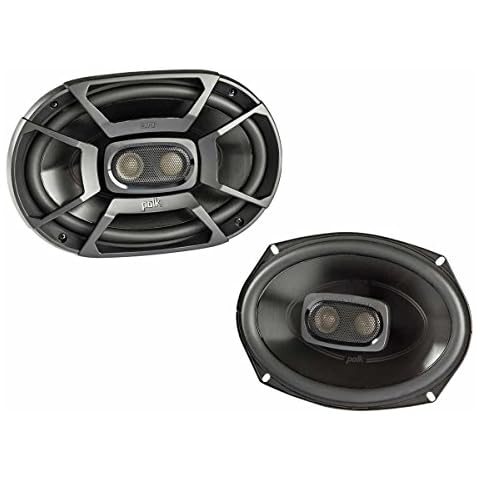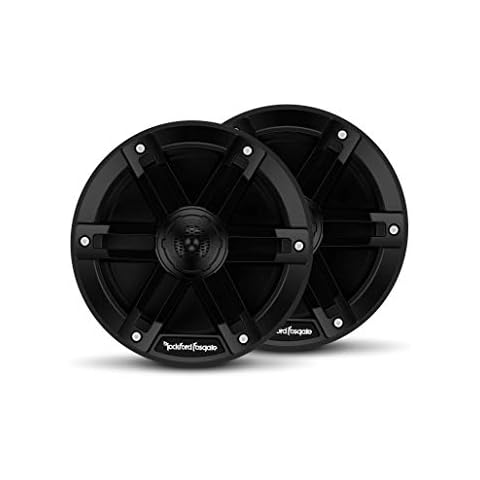Selecting the Right Marine Speakers
Introduction
When it comes to outfitting your boat with sound equipment, choosing the right marine speakers is essential. Not only do these speakers need to be able to withstand the challenges of the marine environment, but they also need to deliver high-quality audio that will make your time on the water even more enjoyable. In this article, we will discuss some key factors to consider when selecting marine speakers, as well as provide some recommendations to help you make the best choice.
Durability and Water Resistance
One of the most important factors to consider when choosing marine speakers is their durability and water resistance. Marine speakers are exposed to a wide range of conditions, including saltwater spray, extreme temperatures, and high humidity. As such, they need to be built to withstand these challenges. Look for speakers with a high IP rating, which indicates the level of protection against water and dust.
Audio Quality
Of course, the primary purpose of marine speakers is to deliver high-quality audio. When shopping for speakers, pay attention to the frequency response range, which indicates the range of frequencies that the speakers can reproduce. A wider range means that the speakers will be able to reproduce a greater variety of sounds, from deep bass to high-pitched treble. Additionally, consider the power handling capabilities of the speakers, as well as the type of materials used in the construction of the cones and surrounds.
Mounting Options
Another important factor to consider when choosing marine speakers is how they will be mounted on your boat. Many marine speakers are designed for flush-mount installation, which involves cutting a hole in the boat's deck or bulkhead and securing the speakers in place. Other speakers may be designed for surface-mount installation, which involves mounting the speakers on brackets or clamps that are attached to the boat's deck or bulkhead. Choose speakers that will fit your boat and your preferred installation method.
Recommended Marine Speakers
There are many excellent marine speakers on the market, but a few stand out for their durability, audio quality, and mounting options. The Polk Audio DB652 is a highly rated option that offers excellent sound quality and a durable construction. The JBL MS6510 is another great choice, with a high IP rating and a sleek design that will complement any boat. For those on a budget, the Pyle PLMR41B is a solid option that delivers good sound quality at an affordable price.
Conclusion
Choosing the right marine speakers can enhance your boating experience and provide hours of enjoyment on the water. When shopping for speakers, consider factors such as durability and water resistance, audio quality, and mounting options. By following these guidelines and considering our recommendations, you can find the perfect marine speakers for your boat.
Frequently Asked Questions (FAQs)
1. Do marine speakers sound as good as regular speakers?
Marine speakers are designed to produce high-quality sound in open areas, so they need to be able to produce louder sound compared to regular speakers. However, low-frequency sounds (bass) can become distorted in marine speakers due to the challenging environment.
2. What's the difference between marine speakers and regular speakers?
Marine speakers are specifically designed for use in boats and exposed to moisture. They use a plastic cone instead of a paper cone like regular speakers, which can be easily damaged by moisture. Marine speakers also have high-quality rubber surrounds and tougher grilles to protect their internal components.
3. Do I need marine speakers in a boat?
Yes, it is recommended to use marine speakers in a boat. Since boats are exposed to salt air and moisture, waterproof or marine-rated water-resistant speakers should be used to withstand these environmental conditions. These speakers are made with materials like polypropylene cones, neoprene rubber surrounds, and corrosion-resistant metal parts to ensure durability.
4. What is the difference between 6.5 and 8 marine speakers?
The main difference between 6.5" and 8" marine speakers is the size and power handling. 8" speakers have a larger surface area and can handle more power than 6.5" speakers. This means that 8" speakers can generally play louder and provide more mid-bass response compared to 6.5" speakers.
5. Can I use car speakers in a boat?
No, car speakers are not suitable for use in boats. Marine speakers are specifically designed to withstand the elements such as salt corrosion, humidity, sun exposure, and water. Car speakers are not built to handle these conditions and are meant for use in the interior of a car.
6. Do marine speakers have good bass?
Yes, quality full-range marine speakers can provide excellent bass response without the need for a subwoofer. However, some argue that too much bass can affect accurate sound reproduction. It's important to choose high-quality marine speakers that are designed to deliver well-balanced sound, including good bass.
7. How do I choose a marine speaker?
When choosing marine speakers, look for ones made with water-resistant materials such as neoprene rubber surrounds, polypropylene cones, and corrosion-resistant metal parts. These materials ensure durability and protection against moisture and salt air. Additionally, consider features like Bluetooth connectivity for easy mobile device connection, especially for Bluetooth marine speakers.
Editor's Notes
During our marine speakers research, we found 24 marine speakers products and shortlisted 10 quality products. We collected and analyzed 57,671 customer reviews through our big data system to write the marine speakers list. We found that most customers choose marine speakers with an average price of $42.98.
The marine speakers are available for purchase. We have researched hundreds of brands and picked the top brands of marine speakers, including Pyle, Polk Audio, Herdio, Midland, Rockville. The seller of top 1 product has received honest feedback from 384 consumers with an average rating of 4.7.
Mike Davis is a professionally trained electrician with six years of working experience in the electronics industry. He has written an array of web and mobile-based articles for e-magazines and blogs. He loves trying out some novel and popular gadgets and his expertise is in the areas of electronics and computers which is built over many years of working and personal experiences.











